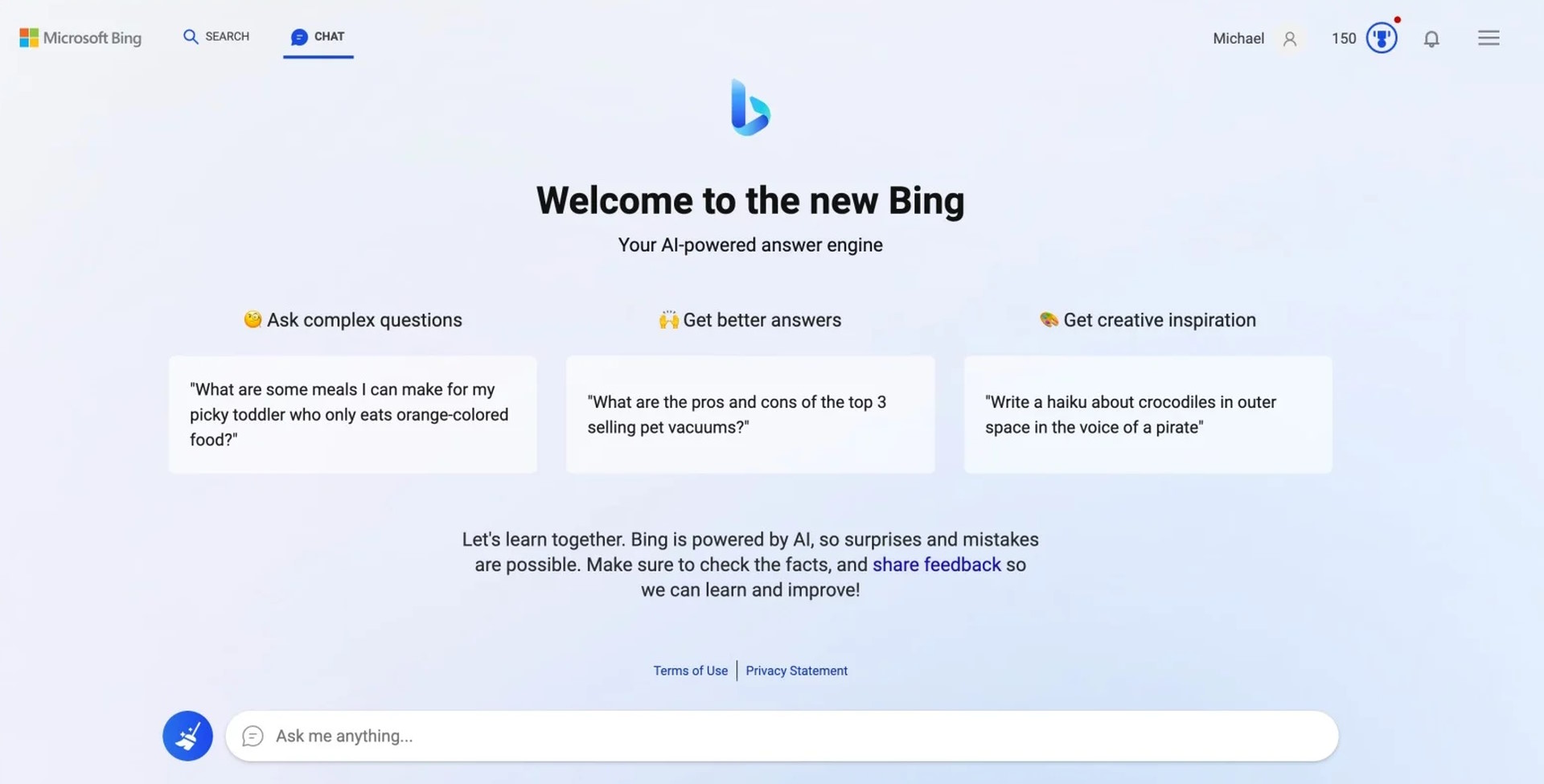Microsoft has announced that starting today users of its closed-beta chatbot for Bing will only be to make 50 chat turns per day and 5 chat turns per session. It says that a turn is a conversation exchange that contains both a user question and a reply from Bing.
Microsoft’s data has shown that the vast majority of users find the answers they are looking for within 5 turns and that only ~1% of chat conversations have 50+ messages. After a chat session hits 5 turns, the user will be prompted to start a new topic. At the end of each chat session, context needs to be cleared so the model won’t get confused. Users can click on the broom icon to the left of the search box for a fresh start.
As Microsoft continues to receive feedback, it will explore expanding the caps on chat sessions to further enhance search and discovery experiences.
Very long chat sessions can confuse the model on what questions it is answering
Microsoft
This comes after Microsoft posted about the lesson it had learned during the first week of the Chatbot’s limited beta. Microsoft admitted that, “long, extended chat sessions of 15 or more questions, Bing can become repetitive or be prompted/provoked to give responses that are not necessarily helpful or in line with the designed tone.”
- Very long chat sessions can confuse the model on what questions it is answering and thus it is thought that a tool may need to be added so that the user can more easily refresh the context or start from scratch.
- The model at times tries to respond or reflect in the tone in which it is being asked to provide responses that can lead to a style that was not intended. This is a non-trivial scenario that requires a lot of prompting so most users won’t run into it, but they are looking at how to give users more fine-tuned control.

Gladstone is a tech virtuoso, boasting a dynamic 25-year journey through the digital landscape. A maestro of code, he has engineered cutting-edge software, orchestrated high-performing teams, and masterminded robust system architectures. His experience covers large-scale systems, as well as the intricacies of embedded systems and microcontrollers. A proud alumnus of a prestigious British institution, he wields a computer-science-related honours degree.
